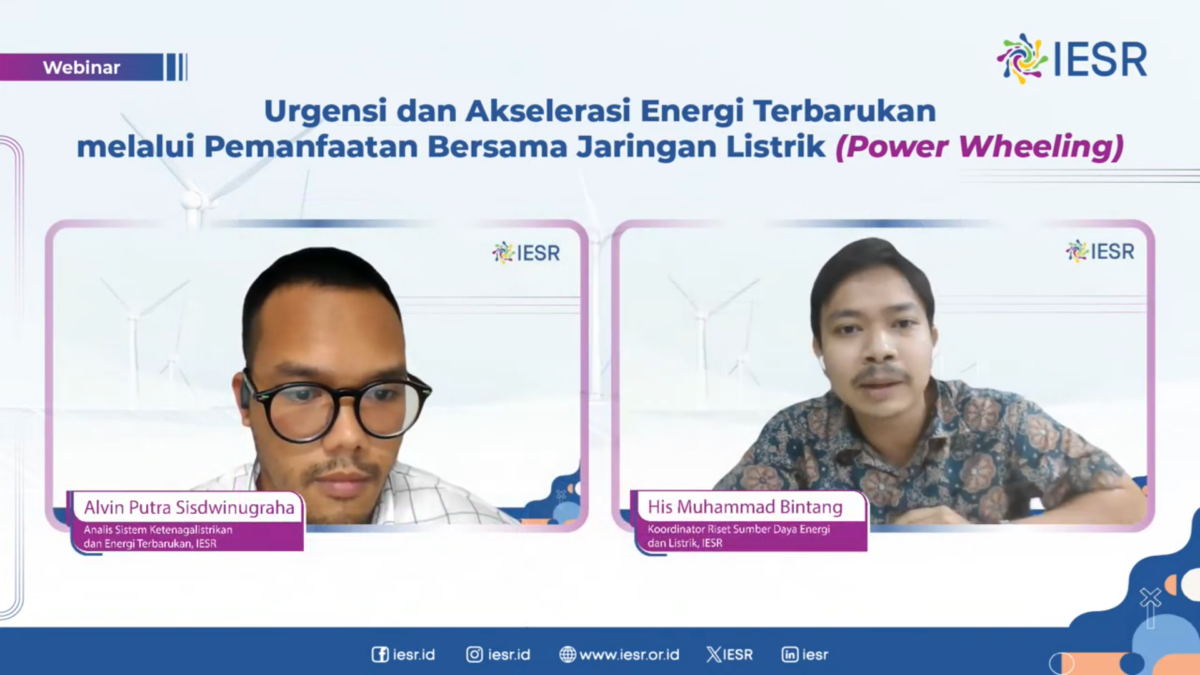Jakarta, September 25, 2024 – The demand for renewable energy electricity, especially from the industrial sector in Indonesia, is projected to increase. Large industries, especially those included in RE100, have targets for large-scale renewable energy use that require breakthroughs to meet these needs.
Deon Arinaldo, Energy System Transformation Program Manager, Institute for Essential Services Reform (IESR) explained that the need for renewable energy is important and direct access to utilize the electricity network has its own demand. This can be clearly seen from several companies that already have renewable energy targets in their operations. According to him, the need for access to renewable energy that has emerged needs to be considered for a solution in order to be able to provide the right supply according to these needs.
“Electricity sourced from renewable energy is not just electricity. This requires standards or classifications that make the company’s needs request (demand side) direct access to utilize the network/power wheeling. We need to pay attention to this because this need will continue to grow,” said Deon.
His Muhammad Bintang, Coordinator of Energy and Electricity Resources Research, IESR stated that IESR’s main concern in the joint utilization of the electricity network is increasing access to renewable energy. We see an increase in demand for renewable energy, one of which is from industry, and it takes a long time to build a new network.
“The power wheeling scheme can open up opportunities for private participation which will accelerate the acceleration process of renewable energy. The current centralized scheme makes the increase in renewable energy still slow in terms of project realization,” he said.
Eko Adhi Setiawan, Associate Professor of the University of Indonesia explained that Indonesia needs to seriously consider adopting the power wheeling scheme. Currently, power wheeling is implemented by countries with an open electricity market system (wholesale market).
“The alternative that I am trying to offer is citizen power wheeling, namely power wheeling on a small scale that is aggregated, close to the peak load, and increases the role of the community,” he said.
Devi Kusumaningtyas, Director of Government and Public Affairs NIKE South and Southeast Asia provided the views of the industry (multinational companies) which are currently conducting an assessment of supply chain investment.
“Our export destination countries are not only looking at the facilities owned and operated directly by Nike, but also its entire supply chain. There is also consumer pressure to consume products that have sustainable and low carbon values,” said Devi.
Devi also added that in addition to answering consumer needs, multinational companies need to adopt renewable energy in order to enter the global market, including the European Union, America and Australia.
Warsono, EVP of Electricity System Planning at PLN explained that one of the obstacles to implementing power wheeling in Indonesia is the absence of an independent operator system and market operator in Indonesia.
“Power wheeling ideally requires an independent market operator and operator system, so that it can manage transactions and operations with many actors openly and fairly, especially if there is a dispute or problem between actors/electricity service providers and or generators,” said Warsono.

